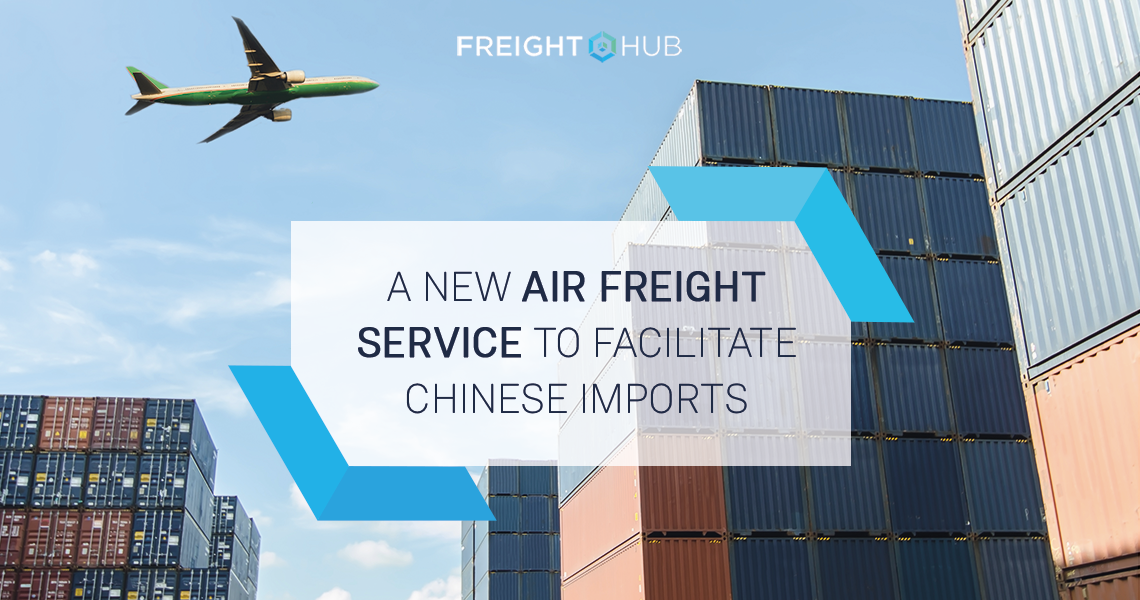Last year, China became Germany’s most important trading partner, overtaking the United States, which fell to third place behind France. In the wake of last year’s US elections, German Vice Chancellor Sigmar Gabriel even suggested that the EU should refocus its economic policy toward Asia. That seems to already be the case in the private sector, where forwarding is moving online to take advantage of synergies and efficiencies.
With Germany’s commitment to free trade stronger than ever, trade between Europe and Asia will remain a fixture of the global economy, a nexus of opportunity in a world where protectionist rhetoric and market instability throw up new challenges every day.
But those two dynamics, opportunity and instability, are a conundrum for shippers looking to expand their markets.
The logistics market is booming, but that’s not always good news for shippers

The air freight markets are red hot right now, and that’s especially the case for high traffic route such as China to Europe where rates are being driven up to record levels as exceptional peak season demand monopolizes available capacity, inflicting pricing pain on shippers already struggling to manage delays out of China.
On the immediate horizon, there’s a capacity crunch that’s driving up rates. With e-commerce taking a growing share of bellyhold capacity, there doesn’t seem to be any letup in the near future.
Everyone is feeling the crunch
In July, Swiss freight forwarder Panalpina was already warning shippers to book early to avoid higher rates and delays, and over the subsequent months, those volumes translated into what could be the busiest peak season on record.
In early December, reports of bidding wars started to filter into the news, with rates on trans-Atlantic routes hitting $13 per kilogram. Prices have since stabilized, but with Christmas around the corner, there’s a chance of another pricing upswing. And with China’s New Year’s celebration in January, the crunch will be a lasting one.
In response, carriers are adding capacity, such as Lufthansa, which added a weekly transatlantic MD-11 freighter flight, but that’s not enough to push prices down.
Drewry’s East-West Airfreight Price Index gained 20 cents in October to reach $2.89 per kilogram, and while November’s numbers aren’t in, they are on track to move up more. Ex-Asia traffic showed particular upward pressure, with cargo from Shanghai to Frankfurt up to $3.50 per kilogram, and Hong Kong to Chicago up to a monthly average of $4.20 per kilogram in October.
It’s not just shipping costs that are confounding shippers this peak-season. Delays of up to three weeks are being reported at China’s busiest airports, as shippers rush to fill any available belly cargo and freighters capacity with products destined for holiday markets.
At Shanghai Airport, Pactl reported a 12.5 percent growth in cargo throughput from January through November, with the airport recently announcing that its annual air traffic had surpassed 4 million tonnes. Hong Kong’s volumes through October increased 10 percent year over year to 4 million tonnes.
Airport overcrowding is a global problem at this point
 China’s air freight markets are maxed out, and to the west, there are plenty of problems afoot that require an agile response.
China’s air freight markets are maxed out, and to the west, there are plenty of problems afoot that require an agile response.
Europe’s major freight airports are mostly at or near capacity, and competition over a dwindling number of available slots has already boiled over into diplomatic disputes. At Schiphol, the erratic arrival times of freighter flights threatened to eliminate Moscow-based AirBridgeCargo’s slots. It now appears that the carrier, and other freighter operators, will continue to have privileged access to the airport, however, other operators are already re-routing freighters to other EU airports like Liege, which bills itself as a “freighter friendly” airport.
The union of Ground Handling Agent in Frankfurt Airport (Main) called a strike on November 23rd, through November 24th, shutting down cargo handling service at the airport, causing major delays for freight forwarders.
Events like the Frankfurt ground handlers’ strikes certainly aren’t a daily occurrence, but they have the potential to tie up millions of dollars in shipments – shipments that forwarders are responsible for. Plus, for every strike, there are a thousand smaller disruptions and delays that require technology to detect and deter.
With conventional forwarding solutions foundering, it’s time to look elsewhere
FreightHub’s platform puts control of supply chains in customers’ hands, allowing them to compare different modes, transit times and prices – all on one screen. That’s a huge advantage over the conventional freight forwarding model, where forwarders were picking up the phone and dialing partners thousands of miles away. A more efficient movement of shipments translates into greater potential for profit for all players.
It’s the perfect partnership for the garments, textile and high-tech industry players who need flexible solutions, reliable service at competitive price.
Moreover, FreightHub’s algorithms can anticipate and proactively route cargo around trouble spots or congestion. Our platform also makes it possible to book along less congested routes, into less crowded airports.
Investors agree, as evidenced by our recent $20 million round of series A funding that FreightHub announced last week. Speaking on the potential for international trade between the EU and Asia, our co-founder and CCO Michael Wax explained that the company had been growing over 15X in monthly volumes for ocean freight since January 2017, adding that he expected the same growth in airfreight services – our latest conquest. “Our first offices in Asia will strongly support those plans”
There’s an easy solution now, and through the Chinese New Year, shippers can lock in guaranteed space, with a five-day booking window on FreightHub’s platform. We’ve established business partnerships across Asia with some of the biggest players in the business, allowing us to offer door-to-door service from Shenzhen and Guangdong Province to anywhere in Germany.








